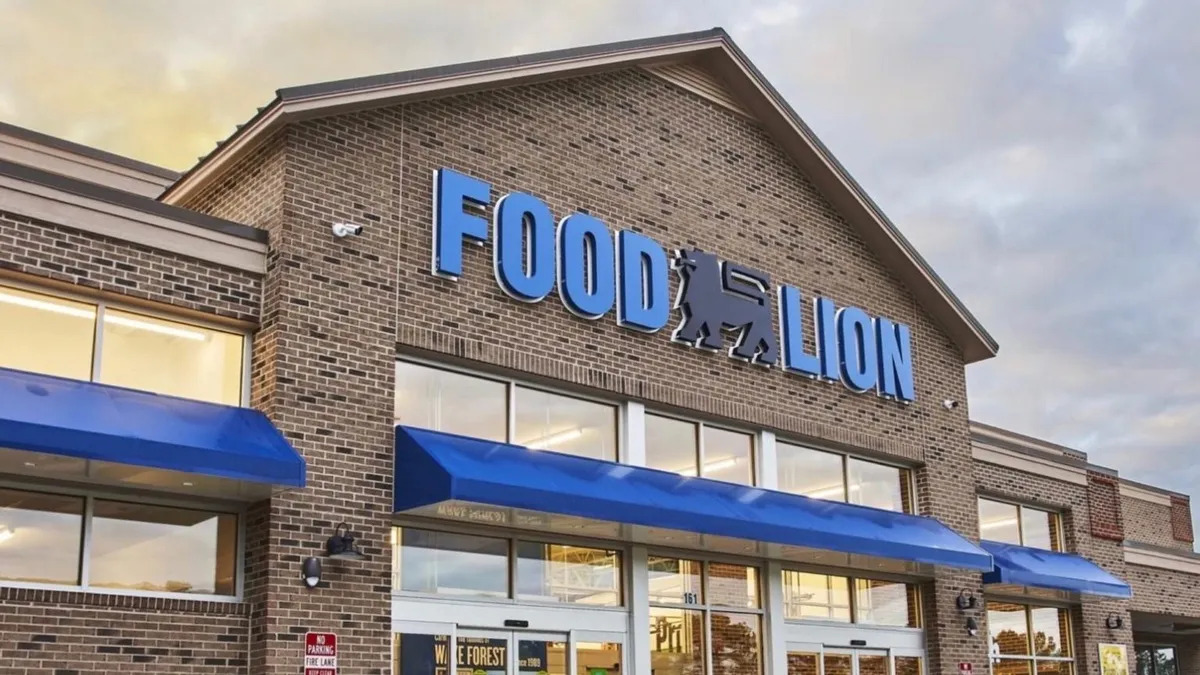Food Lion, a renowned grocery store chain, is currently embroiled in legal turmoil as it faces a religious discrimination lawsuit. The complaint alleges that the company has not adequately accommodated the religious observances of its employees, such as prayer times and religious holidays. As the case unfolds, it brings to the forefront complex issues around workplace diversity and equality, potentially influencing not only Food Lion’s reputation and employee satisfaction but also shaping broader industry norms and policies. The outcome of this lawsuit and its implications for the corporate world is something we should keenly observe as it progresses.
Background of Food Lion Company
Founded over six decades ago, Food Lion LLC is a well-established grocery store company headquartered in Salisbury, North Carolina. The company has grown remarkably since its inception, carving out a niche in the grocery retail sector. It currently operates more than 1,000 stores across 10 Southeast and Mid-Atlantic states, serving millions of customers annually.
Food Lion’s success can be attributed to its strategic business model, rigorous attention to quality, and commitment to customer satisfaction. The company’s culture is deeply rooted in the principles of integrity, teamwork, and respect for diversity, which are instilled in every employee from the onset of their employment. This culture has played a pivotal role in the company’s growth and reputation in the grocery retail sector.
In the recent years, Food Lion has implemented several initiatives that aimed at enhancing its market competitiveness. These include investing in store remodels, expanding its product offerings, and strengthening its digital presence to meet the evolving needs of customers. Despite the challenges posed by the dynamic retail landscape, Food Lion has demonstrated resilience and adaptability, underlining its position as a leading player in the grocery retail industry.
Unveiling the Lawsuit Details
While Food Lion’s reputation and growth are firmly established in the retail industry, the company recently found itself in the legal spotlight. The lawsuit targets Food Lion for alleged religious discrimination, posing a significant risk to the company’s established market position, and potentially impacting its financial stability.
The lawsuit impact could extend beyond the immediate financial implications of potential damages awarded if the case is lost. The company’s image could also suffer, leading to a loss of customer trust and consequently, a decline in sales. Additionally, the lawsuit could trigger increased scrutiny from regulatory bodies, leading to stricter operational constraints and higher compliance costs.
Employee rights are at the heart of this lawsuit, focusing on the company’s alleged failure to provide reasonable religious accommodation as mandated by the U.S. Equal Employment Opportunity Commission (EEOC). This case provides a stark reminder to corporations about the importance of upholding employee rights and avoiding discriminatory practices.
Allegations of Religious Discrimination
The crux of the legal battle revolves around the allegations of religious discrimination lodged against Food Lion. The charges, which surfaced amidst a wider conversation on workplace equality, have directed a spotlight onto the supermarket chain’s faith accommodations, or alleged lack thereof.
The plaintiffs claim that Food Lion failed to provide reasonable accommodations for their religious beliefs, thereby infringing the principles of workplace equality. The details of the allegations suggest a disregard for the faith-based needs of their employees, raising questions about the organization’s commitment to diversity and inclusivity.
An analytical look at the allegations reveals that the employees in question felt marginalized due to their faith. The employer’s purported unwillingness to accommodate their religious observances, such as prayer times and religious holidays, is at the heart of the issue.
The allegations, if proven, could paint a picture of a work environment that is not supportive of religious diversity. They could also suggest that Food Lion has not established adequate measures to guarantee faith accommodations. This situation highlights the ongoing need for businesses to guarantee workplace equality, respecting and accommodating the religious beliefs of all employees, to foster a conducive and inclusive work environment.
Food Lion’s Legal Response
In response to the allegations of religious discrimination, Food Lion has mounted a legal defense, asserting its commitment to workplace equality and respect for religious diversity. The company’s legal strategy leans heavily on demonstrating that these values are not only ingrained in their corporate culture, but also explicitly articulated in their company policies.
Food Lion’s legal team has been proactive in collecting evidence to present a compelling argument. This includes internal documents, training materials, and testimonies from various staff members. The objective is to demonstrate that the company’s policies strictly prohibit any form of discrimination, including religious, and that these policies are effectively communicated and enforced across all levels of the organization.
The legal strategy also involves challenging the credibility of the allegations. Food Lion maintains that it has robust procedures in place to handle any complaints of discrimination, and that these procedures were not utilized in this case. The company argues that if there were indeed incidents of religious discrimination, they were not brought to the attention of the management as stipulated by the company’s policies.
Through this detailed legal response, Food Lion aims to assert its commitment to a diverse and inclusive workplace, while vehemently denying any allegations of religious discrimination.

Potential Consequences for Food Lion
Should the allegations of religious discrimination prove to be true, Food Lion could face substantial repercussions. The immediate consequence would likely be financial penalties set by legal precedents, with the potential for significant damage to its brand reputation.
A vital aspect of the fallout would be the impact on employee morale. If the allegations are proven, it could suggest a failure in corporate responsibility and diversity training, leading to a toxic workplace culture. This could result in a decrease in productivity, employee satisfaction, and perhaps, high turnover rates.
The public perception of Food Lion may also be negatively affected. In an era where consumers increasingly value companies that uphold ethical standards, a proven discrimination case could lead to loss of customer loyalty and reduced sales.
Furthermore, the community impact could be significant. Food Lion’s standing as a trusted local retail partner could be severely compromised, making recovery a challenging task.
Broader Implications for the Industry
Beyond the immediate costs and potential harm to its reputation, Food Lion’s alleged discriminatory practices could have a ripple effect throughout the retail industry. Industry standards are typically designed to encourage ethical practices, but accusations like these could fundamentally undermine the confidence in their efficacy.
The case could set legal precedents, prompting companies to review their policies and workplace culture to avoid similar lawsuits. A heightened focus on corporate responsibility might emerge, stressing the need for companies to actively counter any form of discrimination. This might lead to significant changes in hiring practices, employee training, and the creation of more inclusive work environments.
Employee morale could also be affected industry-wide. The allegations against Food Lion could lead to heightened sensitivity and anxiety among workers, potentially affecting productivity and retention rates. This, in turn, could influence consumer perception. Customers are increasingly making purchasing decisions based on a company’s reputation and ethical standing, and any negative public relations fallout could lead to a significant decline in customer loyalty.
The Fight Against Workplace Discrimination
The fight against workplace discrimination is a multifaceted issue that encompasses understanding its forms, the legal actions taken against it, and its implications on both employees and employers. It is essential to examine the nature of discrimination, its manifestations in the workplace, and the protective laws implemented to safeguard employee rights. In addition, we must analyze the substantial impact these discriminatory practices have on business operations, employee morale, and the overall corporate culture. If you are facing discrimination in the workplace, a skilled NYC employment discrimination lawyer can guide you through the legal complexities.
Understanding Workplace Discrimination
In the face of escalating workplace diversity, comprehending the intricacies of workplace discrimination becomes essential. This involves a deep understanding of employee rights, which are protected under various discrimination laws. These laws aim to guarantee workplace equity and prevent discriminatory practices based on factors such as race, gender, religion, and more.
Diversity training plays a critical role in fostering cultural awareness, helping individuals understand and respect differences in beliefs, values, and customs. This training is geared towards creating an inclusive work environment where every individual feels valued and respected. Inclusion policies, on the other hand, are institutional guidelines that promote diversity and equal opportunities.
Cultural awareness is also vital in addressing religious accommodations, a key aspect of workplace discrimination. It involves understanding the religious practices of employees and making reasonable adjustments to allow them to observe their faith. This could be in the form of flexible work schedules, dress code modifications, or providing a space for prayer.
Ethical practices in the workplace extend beyond just complying with discrimination laws. It’s about creating a culture of respect and fairness, where employees are treated equally and discrimination is not tolerated. These practices contribute to a healthier, more productive work environment.
Legal Actions and Implications
As society’s fight against workplace discrimination intensifies, legal actions and their ensuing implications take center stage. The Food Lion case serves as an illustration of this, combining elements of religious discrimination, legal precedents, and workplace policies in a complex mélange of rights, responsibilities, and repercussions.
Legal actions in such cases often hinge upon established legal precedents. Historically, courts have consistently upheld the rights of individuals to practice their religion freely, including within the workplace, as long as it does not greatly disrupt business operations. This creates a nuanced and delicate balance between the rights of employees and the operational needs of businesses. The case against Food Lion underscores the importance of understanding New York City Human Rights Law in protecting workers from discriminatory practices, including religious discrimination.
Workplace policies also play a critical role in these legal battles. Policies that fail to accommodate religious practices or that result in differential treatment based on religious beliefs can lead to accusations of discrimination. In particular, the Equal Employment Opportunity Commission (EEOC) has been vigilant in pursuing cases where employers’ policies infringe upon religious freedoms.
The implications of these legal actions are far-reaching. They not only impact the parties directly involved but also influence future workplace policies and practices, reinforcing the need for businesses to carefully consider and respect the religious rights and beliefs of their employees.







